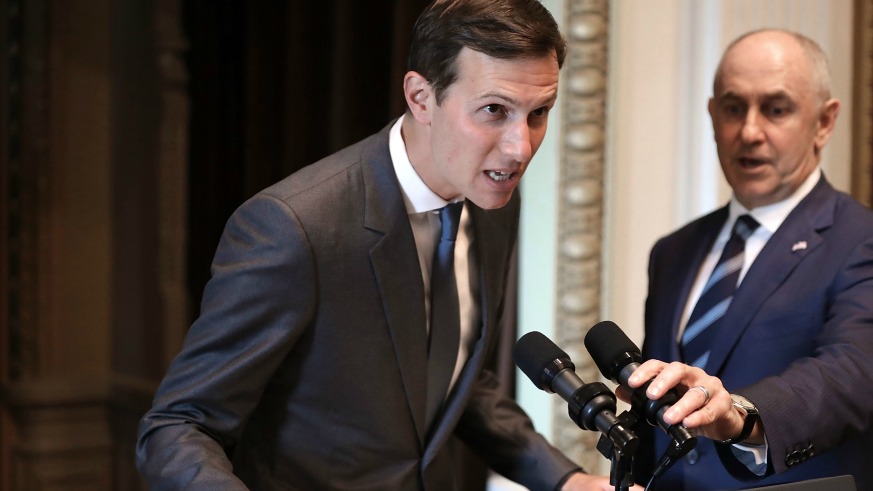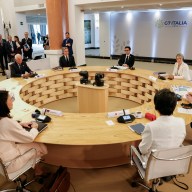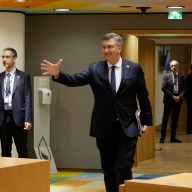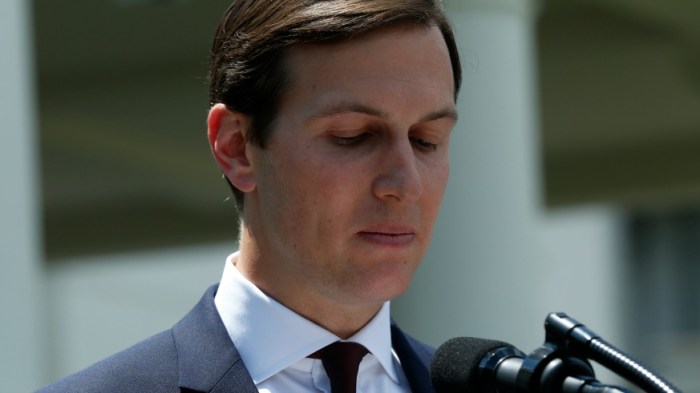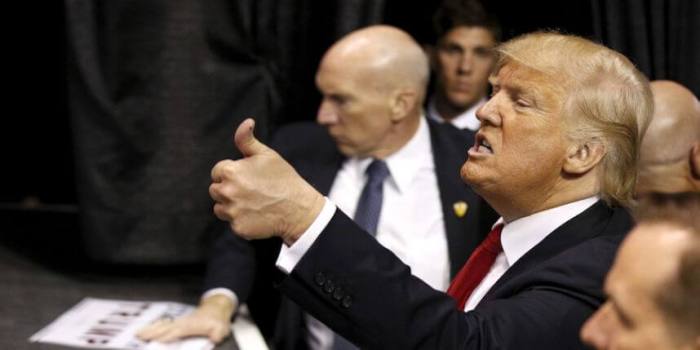One of the greatest mysteries in the matryoshka doll of mysteries that is the Trump administration was finally solved on Monday: Jared Kushner spoke.
President Trump’s son-in-law has not done any interviews or spoken in public on behalf of the new administration, in inverse proportion to how much of the president’s ear he has. Trump has assigned him a daunting portfolio ranging from increasing government efficiency to Middle East peace to relations with China and Mexico. But without the benefit of YouTube, Americans would have no idea what he sounded like at all.
That changed yesterday, when Kushner spoke to the first meeting of the newly created American Technology Council, part of Trump’s Office American Innovation, which is intended to nudge government into operating more like the business world. Apple’s Tim Cook and Amazon’s Jeff Bezos were in the audience. So great was the curiosity that his remarks carried live on MSNBC.
“We have challenged ourselves to pursue change that will provide utility to Americans far beyond our tenure here,” said Kushner. “Together, we have set ambitious goals and empowered interagency teams to tackle our objectives. It’s working and it’s very exciting.”
He speaks! Have you ever heard Jared Kushner’s voice before? Here you go. pic.twitter.com/QKElf1bynn
— Bradd Jaffy (@BraddJaffy) June 19, 2017
Far from a thundering orator, Kushner came off much like his physical appearance: Slight, a little wan — as a “New Republic” writer put it, a little like actor Michael Cera. But that didn’t stop social media from acting like the lost ark had been found, going into hot-take overdrive.
Jared Kushner speaks w/the same stilted 2nd grade reading level cadence as rest of the administration only he sounds like actual 2nd grader
— Onkel Chrispy (@onkelchrispy) June 19, 2017
Jared Kushner speaks like a lizard person who’s just put on their first skin suit and is trying to figure out how it works.
— Brad Loekle (@BradLoekle) June 19, 2017
When Jared Kushner speaks, all I hear is a 6 year old explaining a baking soda and vinegar volcano to the class.
— Nover (@YoungNobler) June 19, 2017
Jared Kushner looks and sounds like that super serious guy in high school who was only sort of cute bc he was born without a sense of humor
— Jessica Grace (@RedHeadedWriter) June 19, 2017
Oh my god! Jared Kushner’s voice sounds *exactly* how you’d expect it to sound: pic.twitter.com/IYHbA91KDJ
— Kaivan Shroff (@KaivanShroff) June 19, 2017
Oh wow, I’ve never heard Jared Kushner speak before. His voice sounds… different than I imagined. pic.twitter.com/GW8Rt7U9lY
— Matt Novak (@paleofuture) June 19, 2017
Before today, I just naturally assumed Jared Kushner’s voice was the same as George Michael Bluth.
I mean he is Mr. Manager after all. pic.twitter.com/rQ38Y8kfxd
— Red T Raccoon (@RedTRaccoon) June 19, 2017
On Sunday, it was reported that Kushner was thinking about shaking up his legal team, hired to represent him in ongoing FBI investigations about his dealings with Russia and personal business history. During the presidential transition, Kushner met with Russian ambassador Sergey Kislyak and suggested setting up a communication backchannel using that embassy’s facilities and equipment.
The idea struck many — including Kislyak — as American innovation indeed. It would have exposed conversations conducted there to Russian surveillance while bypassing U.S. intelligence entirely.

